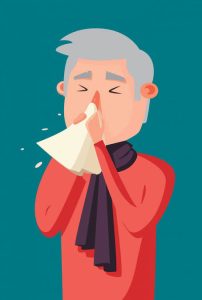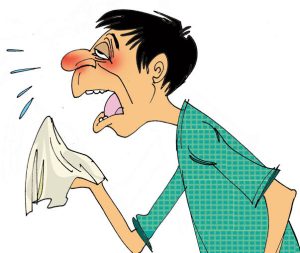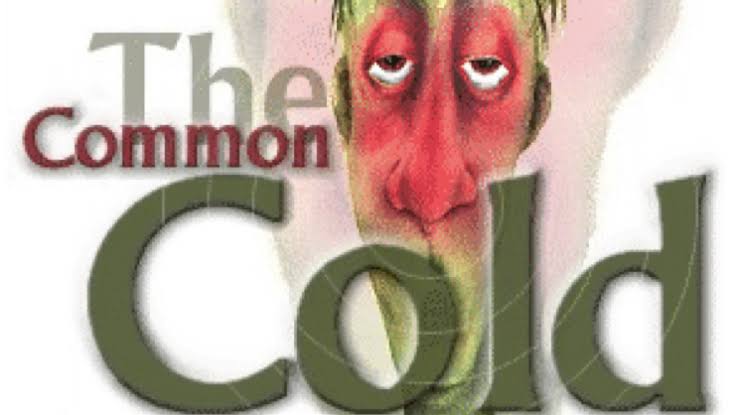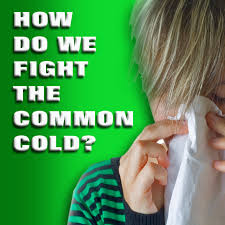Emily, known for her boundless energy and radiant smile, woke one chilly autumn morning feeling unusually heavy and achy. Determined to power through, she tried to go about her day, but her symptoms worsened, and by evening she was barely able to stay awake. Concerned, her best friend Sarah took her to Dr. Harris, the town’s beloved physician. He diagnosed her with a common cold and prescribed a combination of decongestants, cough suppressants, and pain relievers, urging her to rest. Reluctantly, Emily agreed, and with Sarah’s regular visits and homemade soup, she began to find hope amidst her frustration.
Two weeks later, Emily noticed significant improvements in her health, thanks to Dr. Harris’s medications and her body’s resilience. Taking short walks and savoring the fresh autumn air, she realized the importance of listening to her body and accepting help when needed. The experience had taught her a profound lesson in vulnerability and strength, and she emerged with a deeper appreciation for life’s simple joys and the power of hope. Returning to her routines with renewed gratitude, Emily continued to brighten the lives of those around her, understanding that small acts of care and kindness could make a world of difference.
What is Acute Viral Rhinopharyngitis
Acute viral rhinopharyngitis, commonly known as the common cold, is a viral infection that affects the upper respiratory tract, primarily the nose and throat. It is caused by various viruses, with rhinoviruses being the most common culprits.

The common cold can be caused by several different types of viruses. The main types include:
1. Rhinoviruses: These are the most common cause of colds, responsible for up to 50% of cases. They are most active in the spring and fall.
2. Coronaviruses: While some strains of coronavirus cause mild cold-like symptoms, others, such as SARS-CoV-2, can cause severe illness. Seasonal coronaviruses are responsible for about 10-15% of common colds.
3. Respiratory Syncytial Virus (RSV): Common in children, RSV can cause cold symptoms and sometimes more severe respiratory infections.
4. Adenoviruses: These can cause a range of illnesses, including colds, bronchitis, pneumonia, and conjunctivitis.
5. Enteroviruses: These viruses can lead to a variety of symptoms, including those of the common cold, and are more common in the summer and fall.
6. Parainfluenza Viruses: These can cause cold-like symptoms but are also known for causing croup and pneumonia, especially in children.
7. Human Metapneumovirus (HMPV): Similar to RSV, HMPV can cause respiratory infections with symptoms similar to the common cold, particularly in young children and the elderly.

Common symptoms include:
1. Runny or Stuffy Nose: One of the hallmark symptoms, often accompanied by nasal congestion.
2. Sore Throat: Often one of the first signs of a cold.
3. Coughing: Can range from mild to severe.
4. Sneezing: Frequent sneezing is common.
5. Headaches: Mild headaches may occur.
6. Fatigue: General feeling of tiredness and weakness.
7. Body Aches: Mild muscle aches and pains.
8. Low-Grade Fever: More common in children than adults.
9. Watery Eyes: Irritation and watering of the eyes.
10. Post-Nasal Drip: Mucus draining down the throat can cause a sore throat or cough.
11. Loss of Appetite: Reduced desire to eat.
Treatments
1. Rest: Getting plenty of rest helps the body fight off the virus.
2. Hydration: Drinking fluids such as water, herbal teas, and broths helps keep the throat moist and prevents dehydration.
3. Over-the-Counter Medications:
– Pain Relievers: Acetaminophen (Tylenol) or ibuprofen (Advil, Motrin) can help reduce fever, headaches, and body aches.
– Decongestants: Medications like pseudoephedrine (Sudafed) can relieve nasal congestion.
– Cough Suppressants: Dextromethorphan (Robitussin) can help reduce coughing.
– Expectorants: Guaifenesin (Mucinex) helps thin mucus, making it easier to cough up.
– Antihistamines: Diphenhydramine (Benadryl) can help reduce runny nose and sneezing.
4. Nasal Sprays and Drops: Saline nasal sprays can help moisturize the nasal passages and relieve congestion. Decongestant nasal sprays can also be used but should not be used for more than a few days to avoid rebound congestion.
5. Throat Lozenges and Gargles: Sucking on lozenges or gargling with salt water can soothe a sore throat.
6. Humidifiers and Steam: Using a humidifier or taking steam inhalation can help ease nasal congestion and soothe irritated airways.
7. Warm Fluids: Drinking warm fluids like tea, soup, or warm water with honey and lemon can help soothe the throat and alleviate congestion.
8. Healthy Diet: Eating a balanced diet rich in vitamins and nutrients supports the immune system.



